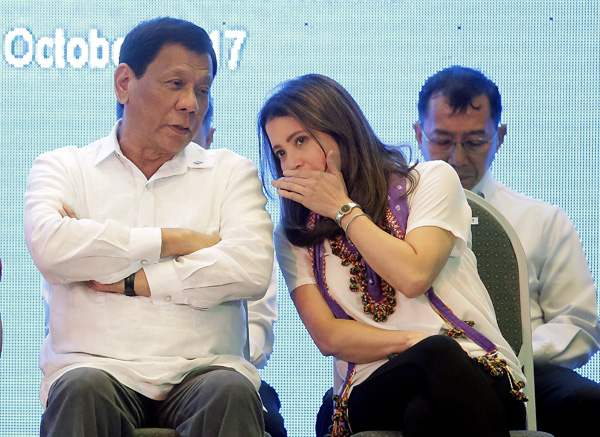THE Paracel islands are located in the northern part of the South China Sea (SCS) close to China’s Hainan Island and Vietnam. To the east is the Philippine island of Luzon. Some years ago, China deployed surface-to-air and anti-ship missiles on Woody Island in the Paracels after building it up from the sea, constructed runways, and turned it into a military base.
Last week, China also installed missiles on three islands much farther south in the Spratly group of islands, between Cambodia and Palawan. The three – Fiery Cross, Subi, and Mischief Reefs – are also claimed by the Philippines. They are among several reefs that China built into islands in 2015 complete with airfields.
The missiles would allow China to strike surface vessels within 545 kilometers of the reefs, as well as to target aircraft, drones, and cruise missiles within 300 kilometers. China’s Defense Ministry was quick to declare that the moves “were not directed at any country” and that they served to “ensure regional peace and stability.” They were installed, it said, as “the natural right of a sovereign nation.”
China’s claim of sovereignty over most of the South China Sea clashes with the claims of several other nations to some islands and reefs close to their shores, including the Philippines, Vietnam, Malaysia, and Brunei. China has sought to allay the fears of these and other members of the Association of Southeast Asian Nations (ASEAN) by offering a Code of Conduct in the SCS, but it has been years since this was proposed and there is no agreement to this day.
The Philippines, during the administration of President Benigno S. Aquino III, won a decision in the Permanent Court of Arbitration in The Hague. The court rejected China’s claim of historical rights to the South China Sea with all its resources. But President Duterte chose a policy of cooperation with China as the alternative, he said, would be war which we cannot win. He has thus embarked on a program of economic cooperation, including joint exploration for oil and gas reserves in the South China Sea.
Last week, however, Duterte said he will have to assert the Philippines’ victory in the international court in The Hague before his term ends in 2020. “I cannot let my administration pass without really insisting, because I am doing it for my country,” he said at the 37th Philippine Principals Training Development Program and National Development Board Conference in Davao City on Friday.
We welcome this declaration from the President. We hope, however, that when his term ends – four years from now – and he takes the promised action, it will not be too late.


